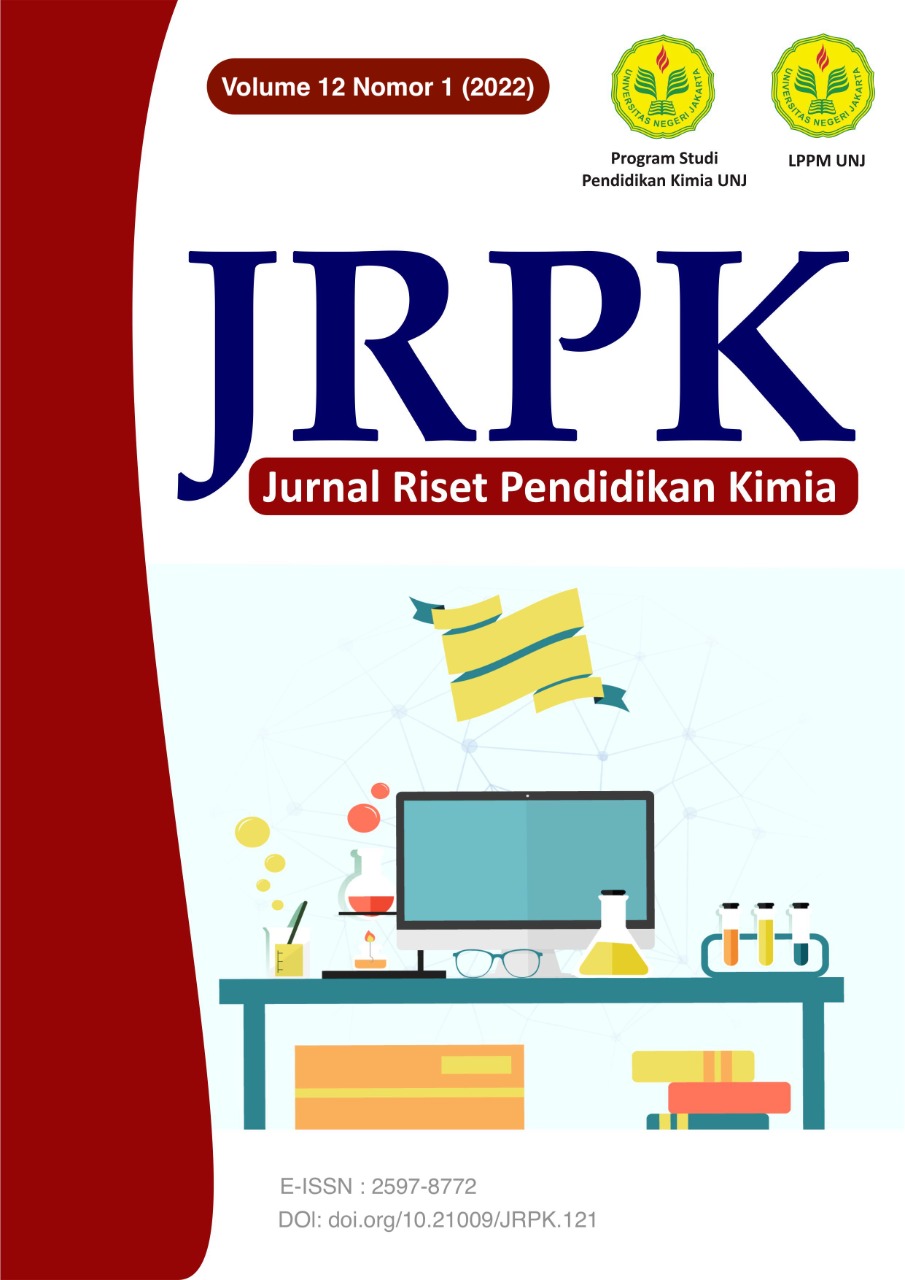Peningkatan Keterampilan Proses Sains Melalui Praktikum Kimia Berbasis Skala Mikro Materi Stoikiometri
DOI:
https://doi.org/10.21009/JRPK.121.07Keywords:
Science Process Skill, Chemistry Experiment, Micro-scale Experiment, StoichiometryAbstract
This experiment aims to determine the differences of science process skills of students receiving micro-scale lab treatment and students receiving conventional practicum treatment. The research method used was a quasi experiment design with a pre- and a post-test design. This research was conducted at SMA Santo Yakobus, North Jakarta in the first semester of 2019-2020 school year. The research consisted of 40 students of class XII Science consisting of 20 students in the experimental class and 20 students in the control class which were selected by purposive sampling technique. The experimental class was given a micro-scale practicum treatment, while the control class was given a conventional practicum treatment. Both classes were given a pre-test and post-test using the same test instrument. The instrument used consisted of 10 essay questions based on the 8 indicators of science process skills that had been tested for validity and reliability (r = 0.919). To see the implementation of the practicum activities, observations are made using an observation sheet. The results showed that there were differences in the science process skills of students who received micro-scale lab treatment and students who received conventional practicum treatment, (tcount (5,412)> ttable (2,528 )). Micro-scale practicum is more effective to improve science process skills compared to conventional practicum. This is related to the implementation of the micro-scale practicum which is carried out individually and provides direct experience to prove facts, theories and concepts that have been learned in class so that students willl gain deep knowledge.
Keywords: Science Process Skill, Chemistry Experiment, Micro-scale Experiment, Stoichiometry






